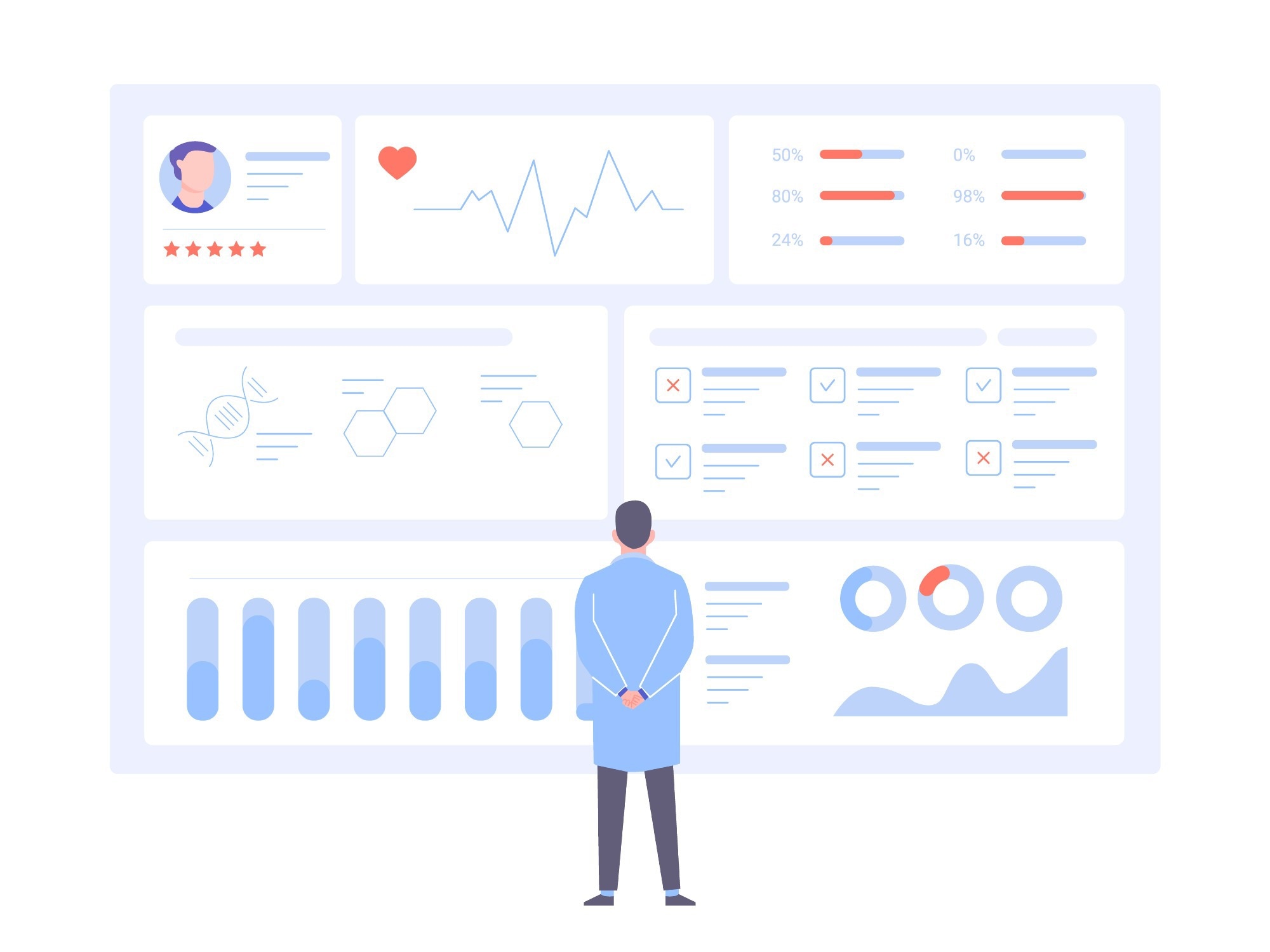The human genome was first sequenced in its entirety in 2003. It was a major breakthrough in genomics that took 13 years to complete, and the project cost more than £2 billion. Nearly two decades later, the same process can be completed in just a few days and costs less than £1,000, thanks to continued advancements in the field.

Image Credit: PopTika/Shutterstock.com
As a result, genetic information has become increasingly accessible, allowing breakthroughs in other fields of science, particularly medical science, where genetic information is helping to develop precision medicine and preventative strategies for several diseases. However, while there are numerous benefits to genomics research, it is also becoming an increasingly significant privacy challenge.
Genetic data holds a wealth of information that must be safeguarded
The protection of individual privacy is supported in all liberal democracies and is considered a societal benchmark. We all expect to be granted privacy, and when others invade it, we feel violated.
Expectations of privacy depend on the context and can vary in different situations. Within the realm of research, privacy expectations depend on the kind of study being conducted, its purpose, and the kind of information it collects. Genomics research collects very sensitive information about a person – their genetic code. This information can be used to determine disease status, estimate the risk a person has of developing a certain disease, predict future likelihood of traits or estimate the past presence of traits, determine familial relationships and ancestry, and, as future advancements in the field occur, genetic information will be used to determine more factors. Due to the sensitive nature of the data that genomics research deals with, there have been increasing concerns over privacy risks.
There is an urgent need to establish protocols to safeguard against the risk of using genomics data immorally. There is the potential that participants of genomics research projects may be subject to discrimination if their information is disclosed to third parties against their wishes. Due to the nature of DNA, the implications of privacy in genomics is particularly important as it concerns the safeguarding of the participants involved in the research, their family members, and future generations. The repercussions of mishandling genetic data could ripple throughout a family and generations to come.
The field of genomics is still new and, therefore, protocols are still being established. Currently, best practices on how to handle the privacy of genetic data are still being debated.
Do we need to keep our genetic data safer?
Since the human genome project, numerous data-generating genomics projects have been set up, such as the Encyclopedia of DNA Elements (ENCODE), the Human Epigenome Project, the International HapMap Project, and the 1000 Genomes Project. These sequence reference libraries have produced large data sets of genetic information considered to be the “drivers of progress in biomedical research”. This data is vital to furthering the field of genomics and, therefore, may be influential in preventing and treating disease.
Ultimately, sharing this genetic data could lead to breakthroughs that could save lives. Because of this, many scientists believe that data held in sequence reference libraries should be instantly available and free, and access should be unrestricted to leverage the full range of opportunities presented by these datasets.
In addition to sequence reference libraries, several repositories have been set up over the past two decades to centrally organize the storage and sharing of data collected via genome-wide association studies (GWAS). These studies involve comparing the genetic information of patients with a disease or specific trait with genomes of healthy control participants to distinguish parts of the genetic code related to the disease or trait.
To conduct this research, large datasets are needed. To make such sets readily available projects that facilitate collaboration and data sharing have been set up, such as the Wellcome Trust Case Control Consortium in the UK, the European Genome-Phenome Archive, and the National Institutes of Health’s Database of Genotypes and Phenotypes in the US.
While the aim of these projects is to maximize the potential benefits of genomics research, e.g., preventing and treating disease, there is concern that there is an urgent need for suitable protocols to be established to prevent unauthorized access to this data. Currently, access to these data sets is obtained via a managed access system, which collects and assesses user credentials before permitting access. However, these systems are not without flaws, and there are concerns that they are not impenetrable to unauthorized users.

Image Credit: fedrunovan/Shutterstock.com
Sharing with our family?
As well as keeping genetic data private to unauthorized third parties, there is also the moral issue of whether genetic data should be shared with family members. After all, genetic data is inherited common amongst biological family members. Some experts in genomics believe that those who share our genetic make-up should have access to information that could indicate the risk of disease. This represents a particular privacy challenge unique to genomics, where the right to privacy must be balanced with the right to disclose risks to others.
Sources:
- Kaye, J., 2012. The Tension Between Data Sharing and the Protection of Privacy in Genomics Research. Annual Review of Genomics and Human Genetics, 13(1), pp.415-431. https://www.ncbi.nlm.nih.gov/pmc/articles/PMC4337968/
- Wang, S., Jiang, X., Singh, S., Marmor, R., Bonomi, L., Fox, D., Dow, M. and Ohno-Machado, L., 2016. Genome privacy: challenges, technical approaches to mitigate risk, and ethical considerations in the United States. Annals of the New York Academy of Sciences, 1387(1), pp.73-83. https://www.ncbi.nlm.nih.gov/pmc/articles/PMC5266631/
- Who Should “Own” Genetic Information? [online]. British Medical Journal. Available at: https://www.newswise.com/articles/who-should-own-genetic-information (Last accessed April 2022)
Further Reading